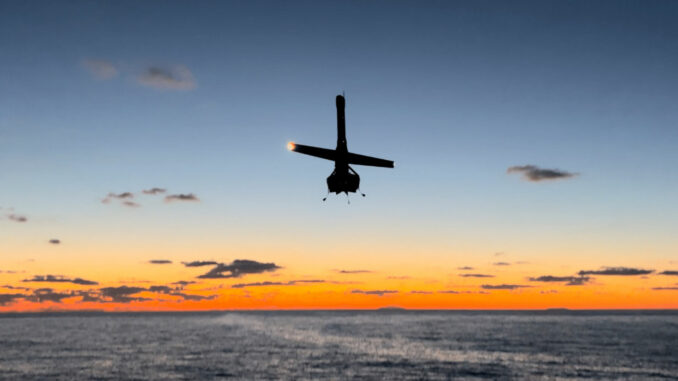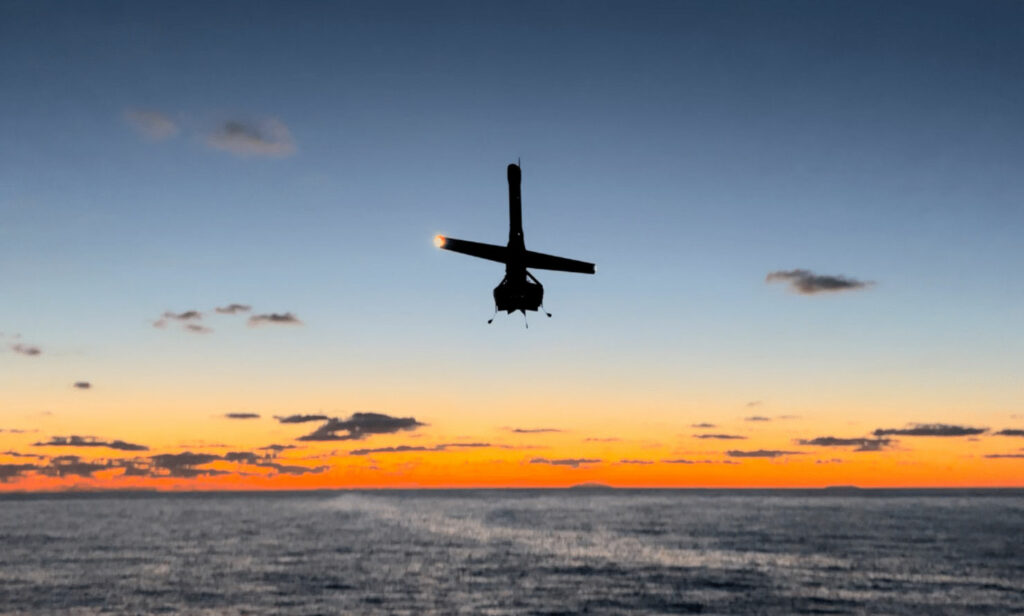
Japan signs agreement with Shield AI for V-BAT drones, offering ship-launched maritime ISR capabilities for JMSDF.
Japan has signed a strategic agreement with Shield AI, a US company, for the acquisition of V-BAT UAVs. These aircraft offer ship-based maritime surveillance and reconnaissance (ISR) capabilities. The V-BAT, a vertical take-off and landing drone, will be used by the Japanese Maritime Self-Defense Force (JMSDF) to respond to growing tensions in the Indo-Pacific. This partnership strengthens Japan’s ability to meet regional challenges, and introduces a unique maritime ISR system. First deliveries are scheduled for this year, marking a key step in the modernization of Japan’s maritime defense.
A strategic acquisition to counter regional tensions
Japan’s decision to acquire the V-BAT UAVs meets a growing need to strengthen its maritime surveillance capabilities. Against a backdrop of heightened tensions with China, notably in the East China Sea and around the Senkaku Islands, the Japan Maritime Self-Defense Force (JMSDF) identified the need for an advanced ISR system capable of operating from its ships.
The V-BAT, designed by Shield AI, is a vertical take-off and landing (VTOL) drone, offering enhanced operational flexibility. This system enables continuous surveillance without the need for landing strips, an essential feature for missions at sea. By integrating these UAVs, Japan is positioning itself as a proactive player in securing its strategic maritime zones, while strengthening its deterrent role against foreign incursions.
The purchase is part of a broader strategy to modernize Japan’s forces, reflected in a 26.3% increase in the defense budget in 2023, reaching 6.8 billion euros. This increase, the biggest in decades, testifies to Tokyo’s determination to adapt to contemporary security challenges.

V-BAT: an innovative ISR system
The V-BAT is a group 3 drone, designed for intelligence, surveillance and reconnaissance (ISR) missions. Its capabilities include :
- Vertical take-off and landing: ideal for operations from ships, without dedicated infrastructure.
- Endurance: it can fly for up to 11 hours, covering large areas.
- Payload: equipped with advanced sensors, it offers detailed surveillance even in complex environments.
Produced in Dallas, Texas, the V-BAT is also being co-produced in India thanks to a partnership with JSW Group, illustrating its growing popularity on the world market.
Its ability to withstand electronic warfare makes it a reliable tool. During its deployment in Ukraine, the drone demonstrated resilience to electromagnetic interference, proving its relevance in high-intensity environments.
The economic and industrial impact of the agreement
This agreement, although exact amounts and volumes are not disclosed, represents an economic opportunity for Shield AI. With growing demand for ISR drones, the global military drone market is estimated to be worth €21.76 billion by 2025, with annual growth of 8.4%.
For Japan, this purchase consolidates its cooperation with the USA, strengthening strategic ties in the Indo-Pacific. However, the cost of defense modernization is a matter of debate within the Japanese government. Critics point out that these investments, while necessary, could weigh on the national economy in the long term.
Regional strategic consequences
The introduction of the V-BAT into the JMSDF is a strong signal to China and other regional players. Tensions in the East China Sea have been rising in recent years, particularly around the Senkaku Islands, administered by Japan but claimed by China. The V-BAT UAVs, with their ability to monitor large areas, will offer a crucial operational advantage for the early detection of incursions.
In addition, this agreement reflects a wider trend in the Indo-Pacific, where countries such as Australia and India are investing heavily in ISR technologies to strengthen their defensive posture. These investments, combined with alliances such as AUKUS, are aimed at containing China’s strategic expansion.
War Wings Daily is an independant magazine.